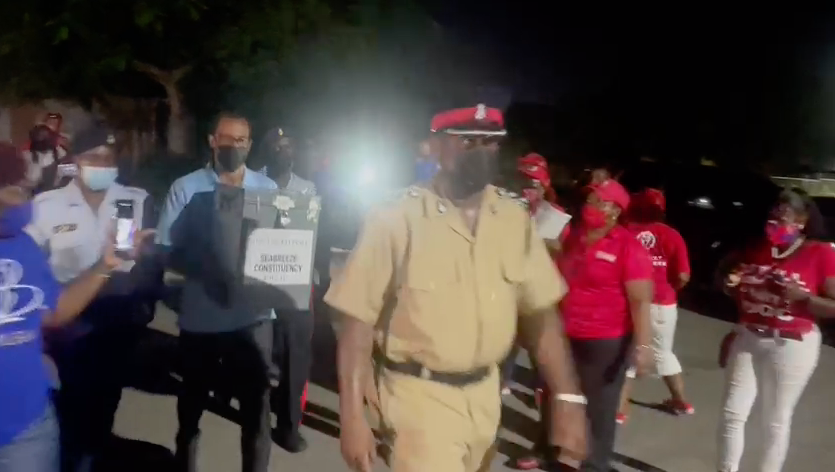Campaign finance reform and women’s participation highlighted as areas to be addressed
OAS report: Challenges were created by unexpected snap election
NASSAU, BAHAMAS — While commending The Bahamas and the Parliamentary Registration Department (PRD) for its efforts to hold a safe and effective electoral process during a global pandemic, the Organization of American States (OAS) electoral observer mission said limited progress has been made on past recommendations, particularly with campaign finance reform and participation of women.
The mission was led by Dr Denis Antoine and comprised of 19 experts from nine countries, observing 32 of the country’s 39 constituencies on Election Day.

As a part of its report, the OAS engaged in a substantive analysis of critical aspects of the electoral process and engaged with local and international stakeholders.
“In these conversations and in its analysis of the electoral environment, the OAS mission noted that there had been very limited progress in The Bahamas in implementing the recommendations of previous OAS missions,” read the preliminary report.
“This was particularly evident in the areas of the political participation of women and campaign finance.”
There remains no legal framework for campaign financing in The Bahamas.
Political parties have no requirement to disclose contributions and disbursements.
The outgoing Minnis administration and the former Christie administration promised to address the issue.

The mission said the current system affects the equity of the electoral competition as the existing political financing is entirely private, and in a first-past-the-post system, “financing tends to flow to the major political parties and leaders”.
The mission again recommended creating a legal framework for recording, managing and reporting political contributions and expenditures, creating a mechanism for citizens and the media to have access to the information and prohibiting anonymous donations from foreign sources.
The mission commended the “significant majority of women” who served as poll workers and political party representatives.
While women participating in the election increased significantly and women made up the vast majority of poll workers in the election, the mission said women are still significantly unrepresented in Parliament and the Cabinet.
Thirty percent of the political candidates vying for office on Thursday were women.
The mission recommended a gender quota mechanism in order to progressively adopt parity measures that level the playing field for women in elections and support an improved general balance within the leadership of political parties and the candidates.
Unexpected
The mission noted that while the country’s election was only one of many elections held across the hemisphere during the pandemic, The Bahamas’ general election took place during a national surge of cases.
According to the mission, while there is a process to call an election at any time, citizens typically expect elections at five-year intervals and the unexpected announcement of fresh elections, the close deadlines and the relatively recent appointment of the acting parliamentary commissioner created “another layer of challenges”.

It said the country’s ongoing recovery from Hurricane Dorian impacted some of the infrastructure traditionally used for polling places.
The mission also said it was informed that the implementation of the continuous register in December 2020, followed by the announcement of a general election last month — nine months earlier than anticipated — may have resulted in the “unintended exclusion of citizens who were not on the 2017 voter’s list”.
The OAS mission said the advance polling process in country was “poorly organized”; and added that on Election Day, while the Parliamentary Registration Department sought to incorporate new procedures necessitated by the pandemic, there were challenges in this regard and at times the procedures implemented were “unclear and continued to evolve over time, even in the final days before the election, resulting in uncertainty among voters and poll workers”.
“Of particular concern to the OAS mission and to political parties was the question of how many agents per candidate would be allowed in polling stations on Election Day,” read the report.

The Parliamentary Election Act provides for no more than three candidate agents in each polling station at any time, but each candidate was only allowed no more than one agent to mitigate COVID spread.
The mission said on the day before the poll, it learned that the PRD had delegated authority to individual presiding officers to determine how many party agents were to be allowed within each polling station.
“…This decision established a basis for differentiated treatment of and access by agents across polling stations and across the 39 constituents of The Bahamas for these election,” the mission said.
Awaiting final results
The mission said at the release of its statement, no official results had been issued to the general public.
It said it will remain engaged with electoral authorities until those results are certified and issued.
“The missions congratulates the electoral authorities on the successful organization and execution of a process that presented significant and logistical and political challenges,” the mission said.
An expanded report is expected to be released at a later date.






